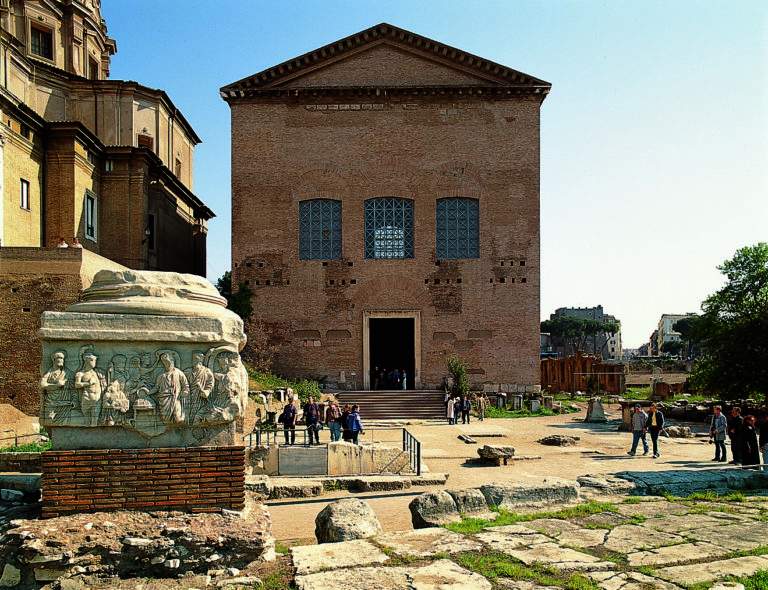Rome, at the Curia Iulia starts the series of meetings "Thursdays of PArCO"
The Senate of Ancient Rome once again opens its doors welcoming I giovedì del PArCo: the series of meetings, scheduled on Thursday afternoons at 4:30 p.m., starting Feb. 14, in the Curia Iulia building. This is an additional opportunity to bring to life a cultural space dedicated not only to presentations of volumes, dialogues between specialists and protagonists of the world of culture, but also to in-depth discussions on current exhibitions promoted by the Park and previews of future projects.
The initiative, realized in collaboration with Electa, confirms the monumental place’s vocation as a living cultural space and therefore designated for debate. The meetings, destined to become a regular event ,represent in fact a plurality of opportunities to strengthen the city’s link with archaeology, reaffirming the strategy that the Colosseum Archaeological Park, directed by Alfonsina Russo, consistently pursues.
The birth of the state in the West and the Constitutio antoniniana, the relationship between women and power through the account of the figure of Julia Domna, a meeting with former director of the Bardo Museum Moncef Ben Moussa, along with a preview on the themes of Carthago. The Immortal Myth, the exhibition that the Colosseum Archaeological Park opens next Sept. 27, constitute the first cycle of meetings organized in Curia Iulia from Feb. 14 to April 4.
Aldo Schiavone, professor of Institutions of Roman Law, will get to the heart of the Constitutio antoniniana on Thursday, Feb. 14: a revolutionary measure issued by Caracalla in 212 A.D., by which Roman citizenship was granted to all free inhabitants of the empire, which had the merit of bringing to fruition a centuries-long process of extending civil rights, realizing the ideal premises of universalism and cosmopolitanism.
He will be followed on Feb. 21 by Francesca Ghedini, professor emeritus of Classical Archaeology at the University of Padua, who will address the role of women in the Severan dynasty, turning particular attention to Julia Domna, a figure of great political influence, wife of Septimius Severus, whom he named mater castrorum (mother of the encampments).
Luisa Musso, professor of archaeology of the Roman provinces at theUniversity of Roma Tre, and Matthias Bruno, an archaeologist, will illustrate the strong links between the Severan dynasty and the city of Leptis Magna on March 7, also describing the results of recent excavations in Libya.
On March 28, Moncef Ben Moussa, former director of the Bardo Museum and currently director of museographic development at theInstitut National du Patrimoine de Tunis, will address the management of Tunisia’s archaeological and museum heritage.
On April 4, Sebastiano Tusa, archaeologist and regional councillor for cultural heritage and Sicilian identity, will instead anticipate some of the themes of the exhibition that will be set up at the sites of the Colosseum Archaeological Park from September 27, 2019: Carthago. The Immortal Myth.
All lectures are free admission, subject to availability (100 seated, 30 standing), with access from Largo della Salara Vecchia. You can visit the official website of the Colosseum Archaeological Park by clicking here.
Pictured: The Curia Iulia in the Roman Forum.
 |
| Rome, at the Curia Iulia starts the series of meetings "Thursdays of PArCO" |
Warning: the translation into English of the original Italian article was created using automatic tools. We undertake to review all articles, but we do not guarantee the total absence of inaccuracies in the translation due to the program. You can find the original by clicking on the ITA button. If you find any mistake,please contact us.





























